GENERAL SITUATION IN MEXICO

Weekly Review I March 12, 2025






Weekly Review I March 12, 2025







Background:
• The U.S. government, under President Donald Trump, has imposed a 25% tariff on steel and aluminum imports from Mexico and Canada, effective March 12, 2025.
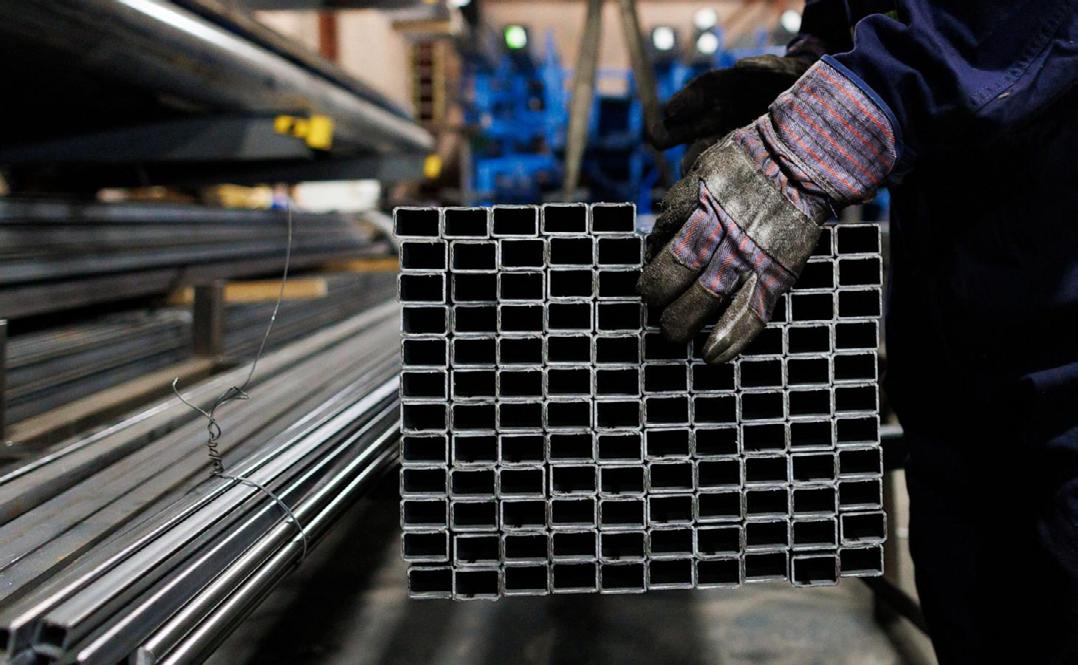
• The measure is justified under national security provisions, claiming that excessive reliance on foreign metals threatens domestic industrial capacity.
• The announcement triggered market instability, with the Mexican peso and Canadian dollar depreciating, while major U.S. stock indexes experienced sharp declines.
• Trump dismissed the possibility of further negotiations, arguing that North American companies should relocate production to the U.S. to avoid these tariffs.
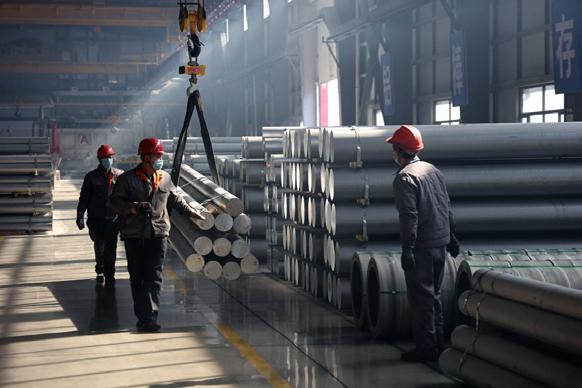
• The tariffs affect billions of dollars in North American trade, particularly in steel-intensive industries such as automotive manufacturing, construction, and infrastructure development.
• Major economic concerns:
• Increased production costs for U.S. automakers, construction firms, and industrial manufacturers.
• Potential job losses in Mexico and Canada’s steel and aluminum sectors due to declining exports.
• Higher inflationary pressures in the U.S., as domestic production struggles to meet demand at competitive prices.
• Both Mexico and Canada argue that these tariffs violate the principles of the USMCA (T-MEC), which promotes free trade and tariff-free access among North American partners.
• Legal experts suggest that the tariffs could be challenged under the dispute resolution mechanisms outlined in Chapter 31 of the USMCA, which allows affected countries to seek retaliatory measures or arbitration.
• The tariffs reignite concerns about the stability of the USMCA, as they mirror the 2018 steel and aluminum tariffs imposed under Trump’s Section 232 trade measures, which were eventually lifted after diplomatic negotiations.
• China, a major steel exporter, has denounced the U.S. tariffs, calling them an unfair trade practice that could destabilize global supply chains.
• Some analysts speculate that these tariffs may be an indirect strategy to pressure Mexico and Canada into reducing Chinese steel imports, which the U.S. claims are often dumped into North American markets.
• The tariffs could backfire, as affected North American manufacturers might increase imports from China instead of shifting production to the U.S., undermining Trump’s policy goals.
SOURCE: ABC NEWS


Index Zona Costa BC held a members’ meeting in Tecate to discuss nearshoring, taxation, foreign trade, and labor regulations. Tecate’s Mayor, Román Cota, highlighted economic opportunities for the region, while Federico Serrano, President of Index Zona Costa BC, emphasized the city’s growing competitiveness and the role of local universities in supporting industry needs. Discussions covered supply chain development and opportunities for SMEs. Experts, including Blanca Montaño and Antonio Ávila, provided insights on IMMEX 4.0, tariff-related audits, tax incentives, and compliance. Ariana Flores addressed labor regulations for 2025, and Paolo Salerno and Fernando Ruiz discussed energy and technology’s impact on the maquiladora industry.
SOURCE: INDUSTRIAL NEWS BC


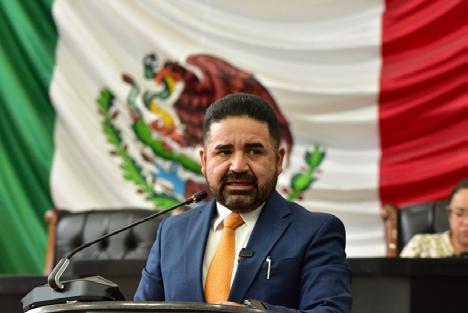

Francisco Sánchez Villegas, deputy and coordinator of Movimiento Ciudadano, proposed a reform to reduce the Value Added Tax (IVA) to 8% across all northern border states to boost industry, commerce, and household economies. He emphasized the need for the north to prioritize its interests, positioning itself as a free trade zone to attract investment and counter potential tariffs. Currently applied only to border cities, the 8% rate should extend statewide to enhance competitiveness, especially in Chihuahua, which accounts for 14% of national exports. The tax cut aims to support industries, businesses, and consumers facing economic challenges.
SOURCE: GOVERNMENT OF CHIHUAHUA

Amid global uncertainty, Nuevo León is diversifying its foreign direct investment (FDI) sources by seeking opportunities from European countries. On March 11, Governor Samuel García Sepúlveda met with Swiss Ambassador Pietro Piffaretti and business leaders to strengthen economic ties. Swiss officials highlighted Mexico as their main trade partner in Latin America and emphasized the benefits of economic diversification. García promoted Nuevo León as a secure investment hub, citing new road infrastructure to the U.S. and a skilled workforce. Swiss companies see Mexico as a key market, with FDI from Switzerland reaching $553 million from January to September 2024, mainly in transportation, industrial, and financial sectors.
SOURCE: EL ECONOMISTA


Guanajuato has solidified itself as a strategic hub for foreign investment, with Japan leading as its primary investor, contributing $8.99 billion and generating over 48,000 jobs through 145 projects in key sectors like automotive, advanced manufacturing, and agribusiness. Governor Libia Dennise García Muñoz Ledo and a delegation are currently in Japan seeking new investments to diversify and strengthen economic ties. The state will also participate in FOODEX Japan 2025 to promote its agricultural exports. Guanajuato prioritizes sustainable, high-value job creation, leveraging its strong partnership with Japan to drive innovation, economic growth, and social development.
SOURCE: MEXICO INDUSTRY


Querétaro is preparing to establish an electronics industry cluster due to the growing presence of companies in this sector, according to Marco del Prete, Secretary of Sustainable Development. Unlike the existing home appliance assembly industry, this initiative aims to produce electronic components. Early discussions are underway to form the cluster, which would support industry growth. Querétaro already hosts multiple clusters, including aerospace, automotive, medical, energy, plastics, logistics innovation, and winemaking. The region is also expanding its data center capacity and addressing energy supply challenges to sustain industrial growth.
SOURCE: DIARIO DE QUERETARO

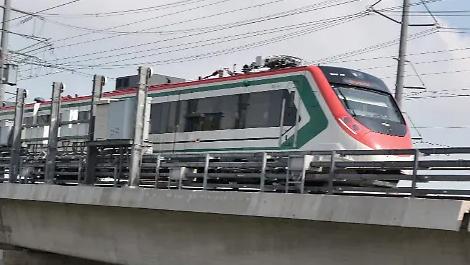

Carlos Maza Lara, Secretary of Urban Development and Infrastructure, announced an estimated investment of 1.76 billion pesos for the creation of a linear park along the Mexico-Toluca train route. The project will cover 88 hectares, with an estimated cost of 20 million pesos per hectare. The park will feature a 21 km bike path, gardens, walkways, recreational areas, commercial spaces, and extensive vegetation, including wetlands. The aim is to rejuvenate the area, which has become a dumping ground for construction debris and waste. Maza emphasized the urgency of intervention, as the area is deteriorating. The project will benefit the six municipalities along the train route— Zinacantepec, Toluca, Metepec, San Mateo Atenco, Lerma, and Ocoyoacac—and is part of the administration’s goal to implement 11 urban development plans. The project is in the planning phase, awaiting approval to secure funding and begin construction.
SOURCE: MILENIO

On March 4, 2025, Laura González Hernández, Secretary of Economic Development in the State of Mexico, emphasized the importance of the aerospace industry as a priority sector for development within the “Plan Mexico,” alongside electromobility, technology, semiconductors, and renewable energy. At the inauguration of the “Aero Expo 2025” in Toluca, she highlighted the state’s leadership in job creation, contributing 32% of the nation’s formal employment with over 100,000 new positions. She also affirmed the strategic role of the State of Mexico in driving economic growth, fostering a dynamic business environment for private and executive aviation. Toluca’s Adolfo López Mateos International Airport (AIT) has become Mexico’s main executive flight terminal, with over 79,500 operations and 1.7 million passengers in 2024. AIT is also the sixth largest in cargo operations, handling 39,000 tons annually. Together with Mexico City and Hidalgo, the region forms the country’s largest consumer market, with 30.3 million inhabitants.
SOURCE: PLANA MAYOR
Mercado Libre has announced an investment of $3.4 billion dollars in Mexico for 2025, representing a 38% increase compared to the previous year. This investment, the largest ever made by the company in the country, aims to expand its logistics capacity and create 10,000 new jobs in various areas such as logistics, financial services, commercial, and administrative roles.
Walmart de México y Centroamérica, the self-service retail chain, will invest $124 billion dollars in the state of Tamaulipas to open 20 new stores during the 2025-2027 period. With this investment, the retail company will generate more than 1,300 direct jobs.
Xusheng Automotive Precision Technology announced a $260 million purchase order over five years, with production from its new Saltillo, Coahuila plant. The $276 million facility, under construction since September 2023, is in the testing phase and will be Xusheng’s largest production center outside China. It will manufacture seven types of parts for an undisclosed North American automaker’s EV platform. Located in the Alianza Derramadero industrial park, the 18,000-square-meter plant will employ 1,200 workers and house casting, extrusion, die-casting, and machining operations. A key Tesla supplier since 2013, Xusheng also serves major automakers like Mercedes-Benz, BMW, and Rivian.

ENGEL inaugurated its new manufacturing plant in Querétaro to expand its capacity, with an investment of $55 million dollars for the 2025-2027 period. The facility is located in El Marqués Industrial Park.With this investment, 215 jobs have been created, and the company expects to more than double this number to 500 jobsover the next two years.
Safran’s Shop 2 plant is 60% complete and aims to expand engine maintenance, repair, and overhaul (MRO) capacity with an $80 million investment, creating 500 jobs. The 14,000-square-meter facility in Querétaro is set to start operations in 2026, increasing annual capacity from 150 to 350 engines by 2030. Safran’s Chairman, Ross McInnes, recently toured the site with Governor Mauricio Kuri González. Announced at the 2024 Farnborough Airshow, the project includes a new maintenance workshop and an expansion dedicated to the CFM LEAP engine, aligned with Safran’s low-carbon strategy.
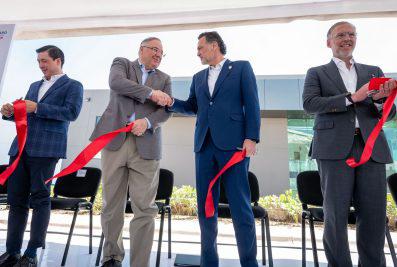
Aptar Beauty inaugurated an expansion of its plant in El Marqués, Querétaro, investing $15.6 million and creating 286 jobs to serve North and Latin American markets. The new 26,000-square-meter facility features advanced manufacturing with 40 injection molding and 47 high-speed assembly machines, integrating high environmental standards. CEO Stephan Tanda emphasized the expansion aligns with the company’s regional growth strategy. Governor Mauricio Kuri highlighted Querétaro’s investment appeal, while state officials pledged support for workforce training. Aptar Beauty, with over 30 years in Mexico, reinforces the U.S. as the state’s top investor, contributing nearly $5 billion since 2006.
SOURCE MEXICO INDUSTRY, MEXICO NOW
LABOR
• BILL TO ADD A NEW SECTION IV BIS TO ARTICLE 784 OF THE FEDERAL LABOR LAW, REGARDING PROTECTION FOR WOMEN AGAINST UNJUSTIFIED DISMISSALS
Presented by: Sen. Anabell Ávalos Zempoalteca (Tlax - PRI)
Objective: Establishes that the labor tribunal or judge will exempt the worker from proving their case when other means are available to uncover the facts. Upon the worker’s request, or if deemed necessary, the employer will be required to present documents they are legally obliged to keep, with the understanding that failure to present them will result in the worker’s allegations being presumed true. The employer will bear the burden of proof if a woman claims she signed her resignation under emotional or psychological coercion.
Status: 2025-03-05 - Published in the Parliamentary Gazette

• BILL TO REFORM AND ADD VARIOUS PROVISIONS OF THE FEDERAL LABOR LAW AND THE FEDERAL LAW OF WORKERS IN THE SERVICE OF THE STATE, REGULATORY OF SECTION B) OF ARTICLE 123 OF THE CONSTITUTION
Presented by: Parliamentary Group of Movimiento Ciudadano
Objective: Establishes that menstruating workers who are unable to complete their workday will be entitled to up to 3 days of leave per menstrual cycle, without affecting their salary, seniority, bonuses, vacation, incentives, or any other acquired labor rights. Employers must grant this leave when menstrual symptoms prevent the worker from performing their duties.
Status: 2025-03-05 - Published in the Parliamentary Gazette
• BILL TO ADD ARTICLE 8 BIS TO THE FEDERAL LAW AGAINST ORGANIZED CRIME
Presented by: Dip. Ricardo Sóstenes Mejía Berdeja (Plur - PT)
Objective: Allows public security institutions to use artificial intelligence (AI) for investigating and analyzing organized crime activities. AI applications include predictive crime pattern analysis, real-time monitoring, biometric recognition, financial risk assessment, and automated investigations, with oversight by the Security Ministry to prevent misuse and protect privacy.
Status: 2025-03-04 - Published in the Parliamentary Gazette

• BILL TO ISSUE THE GENERAL CYBERSECURITY LAW
Presented by: Sen. Mauricio Vila Dosal (LNal - PAN)
Objective: Strengthens the State’s ability to prevent and respond to cyber threats affecting national security, infrastructure, and personal rights. Establishes a National Cybersecurity System, promotes digital rights, privacy, and ethical data management, and fosters cybersecurity research and industry development, particularly for small businesses.
Status: 2025-03-04 - Published in the Parliamentary Gazette
• DECREE TO REFORM, ADD, AND REPEAL PROVISIONS OF THE HYDROCARBON REVENUE LAW
Presented by: United Commissions of Energy; Legislative Studies; Finance and Public Credit
Objective: Simplifies PEMEX’s fiscal framework to strengthen its role as a State Public Company. Introduces a single-rate tax based on oil price and production, exempts PEMEX from income tax, and mandates quarterly investment reports. Revenue will go to the Mexican Petroleum Fund, with audits by the Bank of Mexico.
Status: 2025-03-05 - Approved, sent to the Federal Executive

DOING BUSINESS IN MEXICO: INTELLECTUAL PROPERTY
Expanding into Mexico? Protecting your intellectual property (IP) is just as crucial as setting up operations. From patents and trademarks to trade secrets, understanding Mexico’s IP landscape ensures your competitive edge remains secure.
In our latest blog, we break down the key IP regulations, common challenges, and best practices for safeguarding your assets in Mexico. Whether you’re manufacturing, innovating, or expanding your brand, this guide helps you navigate IP protection with confidence.
Mexico and China’s trade relationship is evolving, opening new opportunities for global businesses. But how do existing trade agreements impact tariffs, supply chains, and investment strategies?
In our latest blog, we explore the key agreements, regulatory frameworks, and strategic advantages that businesses should consider when navigating trade between these two economic powerhouses. Whether you’re sourcing from China, manufacturing in Mexico, or optimizing your global strategy, this guide will help you make informed decisions.
Stay ahead with the latest manufacturing trends, economic insights, and industry updates shaping operations in Mexico. This week’s edition covers:
• Key production & supply chain metrics
• Labor market trends & policy shifts
• Global trade developments impacting manufacturing
Get the insights you need to navigate challenges and seize opportunities in Mexico’s dynamic industrial landscape. DOWNLOAD THE FREE E-BOOK FROM PRODENSA.COM/INSIGHTS/E-BOOKS.